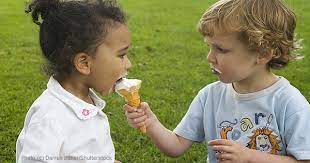Word-Of-the-Week #886: Generous
July 29, 2021 by Susan Clarke · Comments Off on Word-Of-the-Week #886: Generous
Generous – willing to give or share; unselfish.
Have you ever experienced a random act of kindness from someone? How did it make you feel? Have you ever done a random act of kindness?
This week features excerpts from Success Magazine “How 30 Days of Kindness Made Me a Better Person” by Cecilia Meis.
“I don’t know his name, but his messy, shoulder-length hair hides a pair of hauntingly blue eyes. It’s a warm September day in New York, but he’s sitting under a mountain of ragged bits of clothing, towels and blankets. In one hand, he loosely holds a piece of string attached to the neck of a small, mangy-looking dog lying next to him. In the other hand, he clutches a nearly empty bottle of cheap vodka. His bright eyes briefly glance at me without recognition or focus. I don’t know what makes me pause.
My initial thought is to give him money, though I just avoided eye contact with the last 10 people, sputtering that I didn’t have any. And my mom’s words come to mind: “He’ll only spend it on drugs or alcohol.” So I turn to the closest Nathan’s stand and buy him a hot dog, chips and soda.
When I approach him, I feel awkward, my donation insignificant. As if I’m offering a glass of water to a man trapped in a burning building. Is he more of a ketchup or mustard guy? The absurd thought turns my face hot. What comfort will a nutritionally deficient meal with a side of dehydration be to a man who sleeps on cement and spends a life generally invisible to the world?
But when he sees my outstretched hands, he smiles, dropping the bottle and leash to accept the meal with shaky fingers. We don’t exchange any words, but his smile lingers with me.
- Can random acts of kindness actually increase and sustain happiness?
It’s only the sixth day of my month-long challenge to find the joy in making someone’s day every day, and up until now, I had felt like a failure. It wasn’t for lack of trying, but rather questioning whether seemingly small gestures were actually accomplishing my goal. Can I really find joy by giving to those around me? Can random acts of kindness actually increase and sustain happiness?
Turns out they can, but there are exceptions. To find lasting happiness through generosity requires a suppression of our ego, an analysis of our motives and a reflection on how these acts alter our perception of the world.
- How Generosity Benefits Us
As children, our parents tell us to make up for misbehaving by doing something nice for someone. As adults, we help friends move into a new house; we bring hot meals to new mothers; we might even donate time or money to local charities a few times a year. After all, it’s naturally uncomfortable to see a friend (or stranger) suffering or in need. Call it karma or mojo, but these acts are generally reciprocated. We receive tax breaks, returned meals and favors, thank-you notes. Tit for tat.

But what about pure, altruistic generosity, without the expectation of receiving something in return? Some researchers argue this type of generosity doesn’t exist. But I set out to see whether I could learn to give without the promise of getting. I made lists of various kind acts and placed reminders on my bathroom mirror, my work computer, my car dashboard: Make someone’s day today!
My first act of kindness was buying coffee for the woman behind me in the drive-thru lane at Starbucks. In fact, my first few acts were buying something for someone—lunch for an old friend, a copy of my favorite book to a stranger—but they didn’t make me feel much of anything. The recipients were grateful, but was I really making their day, and was that really boosting my happiness?
At the end of each day, I reflected how being kind made me feel. I dug for tangible proof of my growth. Some days felt more significant: buying cough syrup for the two coughing boys in pajamas at the pharmacy, for example. Their father, who had dark circles under his eyes, rubbed the bridge of his nose as his credit card was declined a second time. I couldn’t tell whether he was more embarrassed or grateful, but I like to think he slept a little easier that night, and I left the pharmacy feeling pretty good.
Admittedly I experienced some form of generosity fatigue around the second week of my challenge. It’s easy to float through the day wrapped up in our own heads, focusing only on what directly impacts us. Consciously searching for new and different ways to improve someone else’s day was more difficult than I had anticipated. We just don’t face that challenge often in society. But then when I did the nice deed, I nearly always felt a boost of happiness afterward. A 2009 study by social psychologist Jorge A. Barraza, Ph.D., and neuroscientist Paul J. Zak, Ph.D., attributes this to a release of oxytocin, the feel-good chemical in the brain.
In the late ’80s, the term “helper’s high” was used to describe the euphoria feeling associated with volunteering. Beyond happiness, generous people also experienced enhanced creativity, flexibility, resilience and being open to new information. They’re more collaborative at work; they’re able to solve complex problems more easily and they form solid, healthy relationships with others.
This week’s focus is on being more generous. Have you ever bought anything for someone you didn’t know? Do you give with no expectation of receiving something in return? How does it make you feel when you do a good deed?
I LOVE feedback! Join my Facebook community on my FUN-damentals Fan Page.

